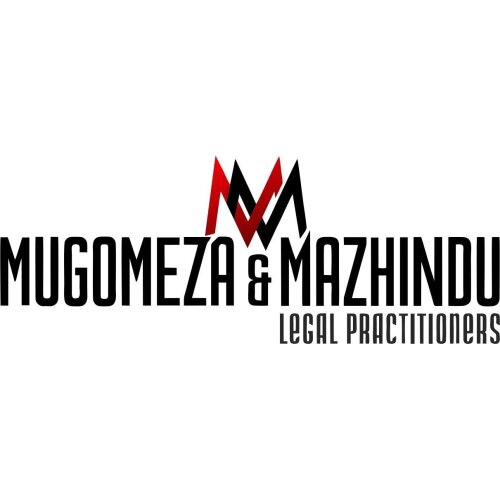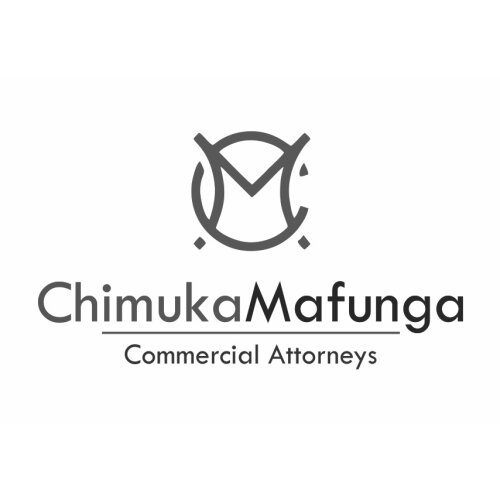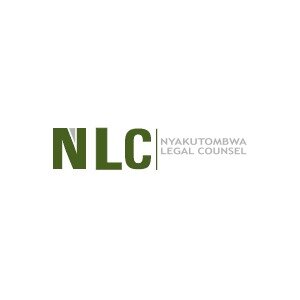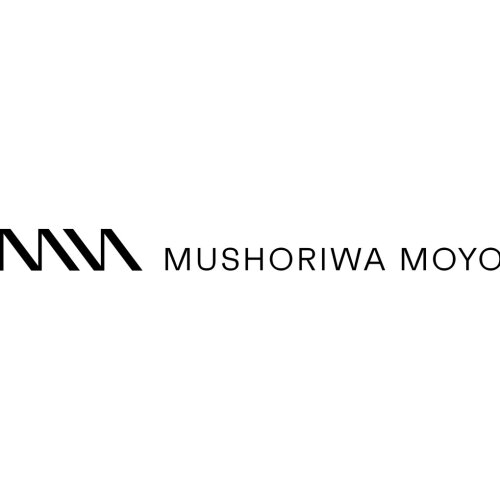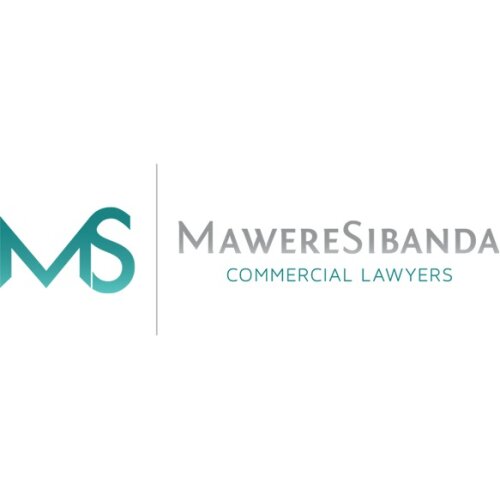Best ESG Advisory & Compliance Lawyers in Harare
Share your needs with us, get contacted by law firms.
Free. Takes 2 min.
List of the best lawyers in Harare, Zimbabwe
About ESG Advisory & Compliance Law in Harare, Zimbabwe
ESG Advisory and Compliance involves the guidance and implementation of Environmental, Social, and Governance (ESG) standards within organizations. In Harare, Zimbabwe, ESG law refers to the regulatory framework and best practices that help companies operate responsibly by considering their environmental impact, social responsibilities, and corporate governance structures. ESG is becoming increasingly important in Zimbabwe as international investors, customers, and regulatory bodies demand higher levels of compliance and transparency. Local businesses are required to comply with a range of national statutes, sector-specific guidelines, and global standards that influence their sustainability practices and ethical conduct.
Why You May Need a Lawyer
There are several situations in which legal assistance in ESG Advisory and Compliance may be necessary in Harare:
- Understanding and interpreting complex regulatory requirements.
- Responding to regulatory investigations or audits related to environmental or social issues.
- Drafting and reviewing ESG policies, codes of conduct, supplier contracts, and disclosure statements.
- Advising on risk management for corporate governance and compliance programs.
- Guiding mergers, acquisitions, or investments with ESG due diligence needs.
- Representing organizations in disputes or litigation arising from ESG-related concerns.
- Assisting with public reporting, stakeholder engagement, and communication of ESG commitments.
- Securing environmental permits and ensuring compliance with community impact assessments.
- Training management and staff on ESG responsibilities and ethical practices.
- Navigating international ESG standards when operating across borders.
Local Laws Overview
In Harare, ESG Advisory and Compliance is governed by a blend of national legislation, statutory instruments, and evolving industry codes. Key local laws and regulatory guidelines include the Environmental Management Act, the Zimbabwe Stock Exchange Listing Requirements which require listed companies to provide ESG disclosures, and labor laws under the Labour Act regarding social welfare and workers' rights. There are also government policies on sustainable investment, anti-corruption, gender equality, and community relations. Companies are expected to adhere to anti-money laundering regulations, have sound corporate governance (as set by the Zimbabwe Companies and Other Business Entities Act), and comply with sector-specific environmental and social safeguards, particularly in mining, agriculture, and manufacturing. Local law is increasingly harmonized with global ESG frameworks such as the Global Reporting Initiative, the United Nations Sustainable Development Goals, and sector-wide best practices.
Frequently Asked Questions
What is ESG and why is it important for businesses in Harare?
ESG stands for Environmental, Social, and Governance. It represents the criteria businesses use to measure their sustainability, social responsibility, and ethical operations. ESG is important because it helps businesses manage risks, attract investment, improve corporate reputation, and meet legal obligations in Zimbabwe and abroad.
Are there mandatory ESG disclosure requirements in Zimbabwe?
For listed companies on the Zimbabwe Stock Exchange, certain ESG disclosures are mandatory under listing requirements, particularly regarding governance and environmental performance. Other companies may be subject to sector-specific rules or best-practice guidelines that promote voluntary disclosures.
What laws regulate environmental compliance in Harare?
The Environmental Management Act and associated regulations govern environmental compliance in Zimbabwe, including matters such as pollution, waste management, impact assessments, permits, and conservation.
How can an organization ensure compliance with ESG standards?
By conducting regular risk assessments, developing strong internal policies and controls, training staff, engaging with stakeholders, and seeking legal advice when necessary. Many organizations also appoint ESG officers or committees to oversee compliance.
What should a company do if accused of an ESG violation?
Seek immediate legal advice to understand the nature of the allegation, respond appropriately to regulators or affected parties, conduct an internal investigation, and ensure corrective action and documentation.
Can ESG issues affect investment opportunities?
Yes, investors are increasingly scrutinizing ESG criteria before making investment decisions. Poor ESG performance can limit access to capital or result in higher borrowing costs. Conversely, positive ESG records can attract investors.
What is the role of the Environmental Management Agency (EMA) in ESG compliance?
The EMA enforces environmental regulations, grants environmental permits, conducts inspections, and may penalize companies found in violation of environmental laws. It plays a key role in the oversight of ESG compliance related to environmental factors.
How does Zimbabwe’s legal system address social and labor-related ESG issues?
Through labor laws under the Labour Act, anti-discrimination statutes, occupational health and safety regulations, and policies promoting community relations and social impact. Compliance ensures fair treatment, safe workplaces, and social development.
Are there international ESG standards recognized in Zimbabwe?
While not always mandatory, many Zimbabwean businesses adopt global ESG frameworks such as the Global Reporting Initiative, the UN Sustainable Development Goals, and various sector-specific codes. These standards often guide compliance, especially for companies with international investors or markets.
How can a lawyer assist with ESG compliance?
Lawyers help interpret regulations, draft policies, conduct compliance audits, represent clients in investigations, and keep businesses updated on evolving ESG legal requirements. They also play a key role in training, dispute resolution, and facilitating regulatory approvals.
Additional Resources
For further information or assistance, consider reaching out to the following organizations and resources:
- Environmental Management Agency (EMA) - for environmental laws and permits.
- Zimbabwe Stock Exchange (ZSE) - for compliance guidance on listed entities and ESG reporting.
- Ministry of Environment, Climate, Tourism and Hospitality Industry - for policy and legislative updates.
- Zimbabwe Institute of Directors - for training on governance best practices.
- Zimbabwe Investment Development Agency (ZIDA) - for investment-related ESG guidance.
- Law Society of Zimbabwe - for access to qualified lawyers experienced in ESG matters.
- Ministry of Public Service, Labour and Social Welfare - for social compliance and labor matters.
Next Steps
If you believe your business or organization needs legal assistance for ESG Advisory and Compliance in Harare, start by identifying your specific needs, whether it is environmental permitting, ESG reporting, or compliance training. Gather all relevant documents, internal policies, and past compliance records. Reach out to a qualified lawyer or law firm with experience in ESG matters in Zimbabwe. Schedule an initial consultation to discuss your concerns and map out a compliance or response strategy. Stay proactive by regularly monitoring changes in the law, and consider engaging your legal advisor for ongoing support and staff training. Taking these steps will position your business to navigate the evolving ESG landscape confidently and responsibly.
Lawzana helps you find the best lawyers and law firms in Harare through a curated and pre-screened list of qualified legal professionals. Our platform offers rankings and detailed profiles of attorneys and law firms, allowing you to compare based on practice areas, including ESG Advisory & Compliance, experience, and client feedback.
Each profile includes a description of the firm's areas of practice, client reviews, team members and partners, year of establishment, spoken languages, office locations, contact information, social media presence, and any published articles or resources. Most firms on our platform speak English and are experienced in both local and international legal matters.
Get a quote from top-rated law firms in Harare, Zimbabwe — quickly, securely, and without unnecessary hassle.
Disclaimer:
The information provided on this page is for general informational purposes only and does not constitute legal advice. While we strive to ensure the accuracy and relevance of the content, legal information may change over time, and interpretations of the law can vary. You should always consult with a qualified legal professional for advice specific to your situation.
We disclaim all liability for actions taken or not taken based on the content of this page. If you believe any information is incorrect or outdated, please contact us, and we will review and update it where appropriate.




